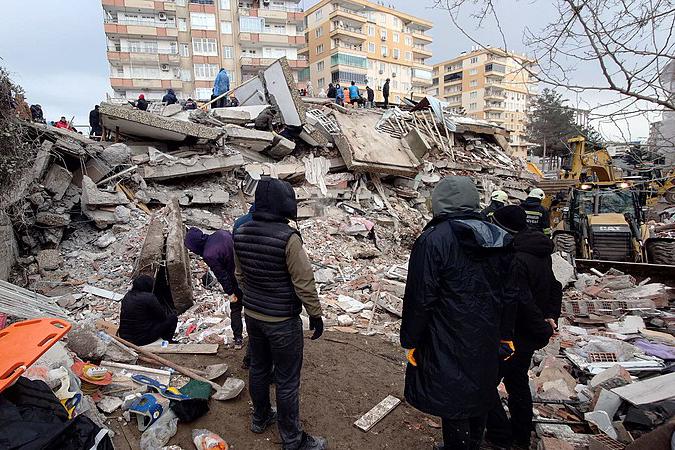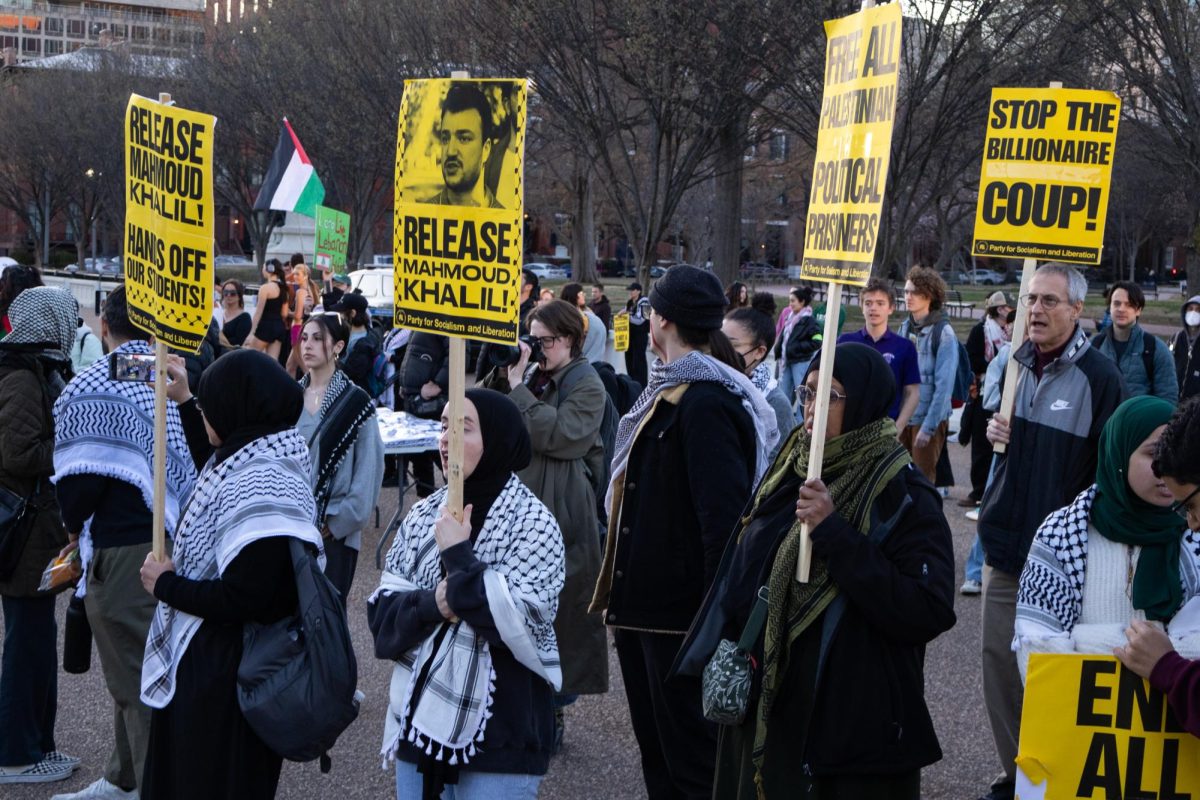Student leaders are supporting victims of an earthquake that struck a border region of Turkey and Syria last week through fundraisers like clothing drives to mobilize GW community members around the issue.
The catastrophic 7.8 magnitude earthquake that shook Turkey, Syria and neighboring countries like Iraq and Jordan last Monday killed at least 34,000 people as of Sunday. This number continues to climb as rescue teams continue to dig through the rubble to locate survivors. Student organizations like the Turkish Student Association, Students for Justice in Palestine and the International Student Association have shared links to earthquake relief funds, accepted donations and collected items like over-the-counter medicines and tents to ship to displaced civilians in Turkey and Syria.
Berk Gorgen, a junior and the president of TSA, said the student organization sprang into action after hearing news of the earthquake last Monday morning, launching relief efforts by advertising fundraisers in Kogan Plaza and offering ways for people to contribute money on the group’s Instagram page. He said the organization has raised about $1,000 as of Friday across three days of tabling in Kogan, which will be donated to funds like Bridge to Turkiye and Turkish Philanthropy to provide hot meals and warm clothes to citizens harmed by the earthquake.
“They’re still living under the debris of the buildings, which is amazing, without food, without water or anything, and people are trying to save them still,” Gorgen said. “So even the little amount of money would help them.”
Gorgen said his family members living in Adana, a city in southern Turkey impacted by the earthquake, survived the earthquake and are safe, but he wants to help other families in the country who remain displaced or separated from loved ones.
“There are people who could not save their families, which is sad,” Gorgen said.
Gorgen said other student organizations, like the Azerbaijani Student Association, helped TSA promote their fundraising efforts in Kogan Plaza and the state of rescue efforts in Turkey and Syria via Instagram. He said various Turkish professors across the University have also supported the fundraising efforts.
“Mostly right now, we are trying to raise awareness to the situation because I think many people are still not really sure how big of a deal this is,” he said.
Gorgen said in addition to accepting contributions through Venmo, TSA is circulating links on Instagram to a selection of funds providing aid for civilians in Turkey and Syria impacted by the earthquake, allowing students to easily access reputable relief efforts.
“We are providing links to different funds as well as to Syrian ones as well, so people can choose what fund they want to donate or just contact us from Venmo and we will separate donations,” Gorgen said.
Lance Lokas, a sophomore and coordinating committee member of Students for Justice in Palestine, said SJP has collected more than $1,000 since Friday for Molham, a volunteer humanitarian organization based in northwest Syria, after sharing the group’s Venmo on Instagram and tabling in Kogan Plaza. He said SJP recognized the need for donations toward parts of Syria that “aid typically can’t get to,” which spurred their fundraising efforts for Molham.
“Obviously these conditions are exacerbated by U.S. sanctions on Syria right now,” he said. “But we hope that the donations we’re collecting and the work we’re doing will provide at least some semblance of relief for these people.”
The Treasury’s Office of Foreign Assets Control announced Thursday that it would exempt earthquake relief aid sent to Syria from economic sanctions that the U.S. government has imposed. Some have criticized the U.S. placement of sanctions on the country following the 2011 Syrian Revolution for allegedly causing disproportionate amounts of harm to people living in Syria.
Lokas said the situation is particularly dire since it is winter and the weather creates especially harsh conditions for those who have been displaced.
“There’s so many people who need help right now,” he said. “Any small bit counts.”
Sophomore Sare Arpaci, the president of the International Student Association, said she was with fellow ISA members when she received “shocking” news of the earthquake. She said members have leaned on each other for support and decided to start collecting relief funds.
She said the organization has collected about $200 for a fundraising campaign to support victims in Turkey and Syria, with proceeds going to the official emergency relief government institution in Turkey and the Syrian American Medical Society.
Arpaci, who is originally from Istanbul, said some of ISA’s members are from Turkey, Syria and neighboring countries, but members and their families are safe.
“It was a shock hearing from others about something that happened in your own country, but also it felt like there was support since I was with the members of my org,” Arpaci said.
Arpaci said ISA is planning to host a professor panel in the coming weeks to discuss the importance of access to media during natural disasters and international crises in light of Turkey’s Twitter restriction shortly after the earthquake, which has since been restored. She said she hopes students recognize the natural disaster as a humanitarian crisis and give what they can to support survivors.
“I think what we would want people to know is that this is a crisis for humans and it’s not related to anything political, or it’s not related to an idea,” Arpaci said. “And right now, what people need is support so that they can find shelter.”








